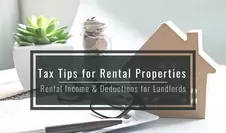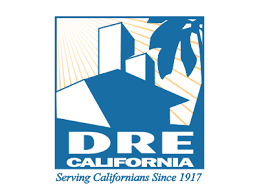 Rental properties in affluent areas of Los Angeles can be cash flowing tremendously- so it's important to have property bookkeeping and tracking of expenses, and understand the tax advantages compared to other types of investments. One of the biggest benefits of owning rental property come tax time are the special opportunities to deduct expenses related to your rental property and rental income. When you rent a property to others as a landlord or real estate investor, you must report the collected rental income as taxable income. The following article provides tax tips from the IRS for landlords reporting rental income and list of acceptable tax deductions offered to rental property owners. WHAT IS CONSIDERED RENTAL INCOME? Rental income includes all amounts you receive as rent from residential occupancy of your properties. You must include all income collected as rent from all your properties. Advanced rent received during the year, even if it is meant to cover rent in a future year, must be reported on the current year’s return. For example, if you have a 12-month lease that began in June 2016, and your tenant paid you first and last month’s rent up front, you would report the rent for June 2016 (first month’s rent) and May 2017 (last month’s rent) as rental income earned in 2016. Security deposit funds are not included in your tax return when you first receive them from a renter. Only if you keep all or a portion of the security deposit funds during the year as part of the lease terms, you must include the amount of the deposit you kept in your reported income that year. Fees collected from a tenant for things like late rent payments, pet fees, parking spaces, or early lease cancellation fees must be included in your total rental income for that year. Services received, instead of money, as rent, must be included as the fair market value of the services in your rental income. For example, your tenant is a painter and offers to paint your rental property instead of paying rent for two months. If you accept the offer, include in your rental income the amount the tenant would have paid for two months worth of rent. RENTAL PROPERTY TAX DEDUCTIONS FOR LANDLORDS The following list of landlord deductions is provided by the IRS to help investors at tax time minimize their tax burden. As you begin a new year, or prepare your taxes from the preceding year, make sure to keep excellent records of the following tax deductions available to landlords come tax time. The only way to make sure you are maximizing your tax deductions is to maintain proper records of all your expenses.
Make sure to speak with your tax professional if you have any questions or concerns about the tax opportunities available to rental property owners. Based on Rentec Direct Blog post.
0 Comments
 LANDLORD 1099 REQUIREMENTS Landlords are required to send out 1099s when paying out $600 or more to certain individuals and businesses. If you fail to meet the 1099 requirements you may face severe fines and penalties. This is one reason to hire a professional property manager who handles this for you! Landlords should require all non-employees such as contractors, businesses, vendors, professionals, etc to return to them a completed W9 to keep on file. You can find a current W9 form available here: IRS | About Form W-9, Request for Taxpayer Identification Number and Certification Landlords must meet the filing and mailing deadlines to avoid penalties. Deadlines change yearly but often are due to be filed by or before the end of January following the year payments were made. You do not need to file a specific 1099 if a) That business is a corporation, b) An LLC is taxed as a C or S corporation, or c) The total payment for the year is less than $600. If at any time you are uncertain about your obligations and requirements, seek out a tax professional for assistance. WHAT IS A 1099? Independent contractors, vendors, and some small businesses need to receive 1099s showing the income received for the services they offer so they can complete their personal and business tax returns. There are around 20 different types of 1099s but for landlords the ones you’ll need to use most often are: 1099 MISC form You’ll need to send a 1099-MISC to document attorney fees and rent (such as office or commercial space) paid in total of $600 or more in the year. There are specific boxes on the 1099 MISC form for the type of payment (for example box 1 is to document total rent paid). General 1099 Misc information can be found here: IRS | About Form 1099-MISC, Miscellaneous Income Specific information regarding attorney fees, rents, vendors, etc can be found here: IRS | Instructions for Forms 1099-MISC and 1099-NEC 1099 NEC form NEC stands for Non-Employee Compensation, which means you’ll be sending out a completed 1099-NEC form to persons or businesses that you paid at least $600 to in that year for services performed by non-employees such as vendors. More information can be found here: IRS | About Form 1099-NEC, Nonemployee Compensation WHO NEEDS TO RECEIVE A 1099First, understand what is meant by Payee on the 1099 form. As a landlord, the Payee is someone you’ve paid for services such as:
Did you know that some businesses are exempt from receiving 1099s based on their business status and other criteria? How do you know if a business, vendor, professional, or independent contractor is or isn’t exempt from receiving a 1099? Great question! The answer can be found by requesting each to provide you with a completed W9. WHAT IS A W9 The W9 fillable form is something they (the vendor, independent contractor, professional, etc) complete. It allows them to check a box to indicate if they are, or are not, exempt for receiving a 1099.
When you require W9s you can be confident you have accurate information, have something on file for audits, and streamline your 1099 process. HOW DO YOU FILL OUT A 1099 TAX FORMSpecifically, you can use any of the three links to the IRS above to find information on how to fill out a 1099 tax form. But what gets tricky, as my relative found out, is the stand-alone 1099 form software needed to complete the forms — find out too late that the software isn’t intuitive and unfortunately non-refundable once opened. If you find yourself in that situation, the best piece of advice is to have the IRS links above open, have those W9s handy, and a list of the people you’ve paid at least $600 to for that year (and the total amount paid to each). Then, go slowly and confirm those details. Not only can those stand-alone 1099 software products be complicated, they can also be very expensive when you add up the cost of the specialized forms, envelopes, and the software itself. Because of the complexity, some choose to hire an accountant or bookkeeper to process your 1099s but again, that can become very costly. But as I shared with my relative, there is good news! There is a simpler way to meet your 1099 requirements as a landlord. Whether you rent out rooms in your home, have one or a few rental properties, or a large portfolio, you can take advantage of the 1099 integration within most landlord software programs. A good landlord software not only has very inexpensive integrated 1099 form services (mailing, IRS electronic submissions, 1099 State filing, etc) but you’ll also have records handy for your other tax needs such as rental income received, Schedule E expense list, depreciation reports, etc. Not only that, many programs allow you to provide an accountant or bookkeeper access to those reports or you can create and email them directly from the software to your tax preparer. Even if you do your own tax preparation, having those reports handy will make that process much smoother — not to mention, you’ll have tenant screening, leasing, and communication tools at your fingertips to simplify tenant turnover. It’s not too late to invest in landlord software to help you for this upcoming tax season and for the many to come. Information based on Rentec Direct Blog ABOUT THE AUTHOR Heather Peake Heather, a writer in the rental and property management industry, applied her skills as an onsite property manager and landlord for many years before lending her talents to Rentec Direct. She now focuses on sharing her research and insider insights with landlords and property managers in the trenches. To learn more about Heather and find valuable tips visit www.rentecdirect.com |
Archives
July 2024
Categories
All
|
Locations |
KEYBOXDRE 02086236About Our Broker: Los Angeles native, with a Bachelor's and Master's from Stanford University.
California Real Estate Broker Exam Perfect Score. |
What Our Clients Are Saying"Keybox is a rare balance of both approachable and professional, always responds quickly and efficiently when I reach out, and I trust the Broker completely. Highly recommended!!" |


